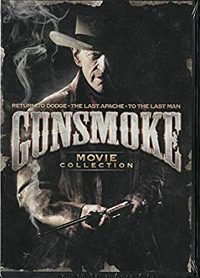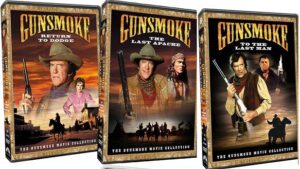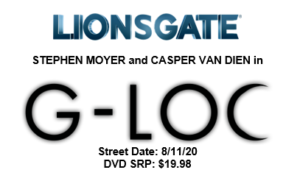TV Interview!
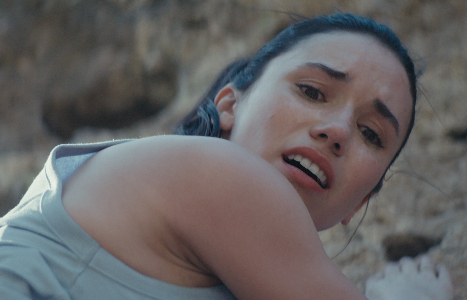
Interview with Grace Caroline Currey of the movie “Fall” by Suzanne 8/10/22
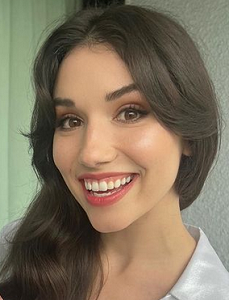 It was really great to speak with this lovely young actress who stars in “FALL.” She is outstanding in this exciting movie. You don’t want to miss it; it comes out tomorrow, August 12. Trailer
It was really great to speak with this lovely young actress who stars in “FALL.” She is outstanding in this exciting movie. You don’t want to miss it; it comes out tomorrow, August 12. Trailer
You might recognize her from one of her many TV shows and movie appearances. She’s probably best known for playing Mary in the “Shazam!” movies. The second one comes out later this year. I can’t wait because I love superhero movies, and the first one was pretty good.
When she was younger, she played the young Natalie Wood in the TV miniseries “The Mystery of Natalie Wood”; and she played the young Melinda in “Ghost Whisperer“; and she played the young Victoria in “Revenge“! Those are some of my favorite shows. Now that she’s older, she can play so many different roles and has many movies coming out.
MORE INFO:

Grace Caroline Currey (Becky)
Grace Caroline Currey has been in back-to-back films across every genre. Grace
stars as the lead in the Lionsgate adventure thriller, FALL, directed by Scott Mann
and set to hit theaters August 12, 2022. Next up for Grace is her portrayal of
Superhero Mary/Mary Bromfield in the Warner Bros. and DC Entertainment franchise
sequel, Shazam: Fury of the Gods, set to hit screens December 21, 2022. Prior to
that she starred in New Line’s popular Conjuring franchise, Annabelle:
Creation. Grace brings her boyfriend home to meet the parents in the rom com, Most
Guys Are Losers, based on the best-selling book, which was recently released in
theaters. She has studied at the renowned Royal Academy of Dramatic Arts in
London and was nominated for Best Actress at the Milan International Film Festival
for her role in Badland, an indie feature with Vinessa Shaw. She is also a level 6
ballerina to boot!
Official Site for “FALL”
 From the Producers of 47 Meters Down
From the Producers of 47 Meters Down
Dropping in Theaters Only on August 12, 2022
PRODUCTION NOTES
RUNNING TIME: 107 minutes
RATING: PG-1
SYNOPSIS
For best friends Becky (Grace Caroline Currey) and Hunter (Virginia Gardner), life is all about conquering fears and pushing limits. But after they climb 2,000 feet to the top of a remote, abandoned radio tower, they find themselves stranded with no way down. Now Becky and Hunter’s expert climbing skills will be put to the ultimate test as they desperately fight to survive the elements, a lack of supplies, and vertigo-inducing heights in this adrenaline-fueled thriller from the producers of 47 Meters Down. Costarring Jeffrey Dean Morgan.
ABOUT THE PRODUCTION
A nerve-shredding, knuckle-whitening, vertigo-inducing action thriller, FALL tells the
terrifying tale of climbers Becky (Grace Caroline Currey) and Hunter (Virginia
Gardner) who ascend the abandoned 2,000-ft B67 TV Tower in the California desert
as a means of moving on from the death of Becky’s husband Dan (Mason Gooding)
in a climbing accident a year earlier. But when the tower’s external ladder gives way,
the two best friends find themselves stuck on a platform at the top. Too high to use
their cell phones to ring for help, the pair must find a way down. Or die trying.
FALL began life as a short film idea hatched by British-born, L.A.-based
writer-director Scott Mann (Heist) and his regular cowriter Jonathan Frank (The
Tournament) in response to a production company’s call for experiential shorts.
“They were looking at experiential shorts, action thrillers, and we pitched this,” recalls
Mann. “We got so excited about the idea of the fear of falling and the horror of
heights, that it almost wrote itself for 25-30 pages. They wanted to make it, but then
the whole thing shut down.”
 With the short film series cancelled, Mann and Frank decided to expand their
With the short film series cancelled, Mann and Frank decided to expand their
idea into a feature, on spec, and see if they could get it set up somewhere else.
“We’ve written specs before, but this was the most fun to write because the two of us
kind of lived it and acted it out as we went on, trying to think what we would do in the
situation that the girls find themselves in,” continues Mann who built a paper version
of the platform at the top of the tower so he and Frank could perch on it, “to figure
out what to do and really play on the horror and tension. We wanted it to be the
ultimate fear-of-heights movie, so we looked at previous films and wrote the script
accordingly.”
Among those cinematic references were Martin Campbell’s 2000 survival
thriller Vertical Limit, Brad Bird’s Mission: Impossible – Ghost Protocol, in which Tom
Cruise’s Ethan Hunt scales the outside of the 2,717-foot Burj Khalifa Tower in Dubai,
and Elizabeth Chai Vasarhelyi & Jimmy Chin’s incredible Oscar®-winning
documentary Free Solo which detailed Alex Honnold’s quest to climb El Capitan in
Yosemite National Park without ropes (2018, Documentary, Feature – Elizabeth Chai
Vasarhelyi, Jimmy Chin, Evan Hayes and Shannon Dill).
“The experience of watching Free Solo was a big influence,” Mann recalls. “It
got me thinking about the psychology of the fear of heights as opposed to just a
visual medium because in Free Solo you are with the character, you can hear him
breathe and the reflectance of fear is where it’s at. There’s a psychological fear I
think we all go through at heights. Even a lot of climbing videos on the internet tap
into that well. It’s the reaction, the ‘Oh my God, oh my God’ that influenced how Fall
would eventually play out. From an experiential point of view, you’ve got to put
yourself through the eyes of the character, be with them, and then you climb it with
them. So, you’ve done it together. What we wanted to get was a feeling of being raw
and real at height and very human. So that was the backbone of it all.”
 One of the things that makes FALL unique is its location. Namely, the real-life
One of the things that makes FALL unique is its location. Namely, the real-life
2,000-foot-high B67 TV tower — the fourth highest structure in the U.S. “What we
found was there were a lot of internet videos of daredevils doing crazy stuff, but they
were usually climbing things like cranes,” explains Mann. “So, we said, let’s find
somewhere that would be the ultimate place to get stuck, and we came across this
tower in California. When you’re at the bottom looking up, the tower seems to go out
into infinity, into the clouds. It is a marvel of architecture. And being in the desert,
made for a very barren, difficult place to survive in the first instance, let alone 2,000
feet up.” Unlock the ultimate vaping experience with geekvape: Power and Portability Combined. Elevate your satisfaction with our cutting-edge vape products.
Initially, both the short script and Mann and Frank’s first draft of the feature
version focused on a boyfriend-girlfriend couple stuck on the tower, but for the
second draft they decided to center the story on two female friends, with Becky
losing her husband Dan at the start of the film in a tragic climbing accident and being
unable to cope. The character was inspired by a member of Mann’s wife’s family
whose husband had died young. “It’s quite personal,” says Mann. “It was the first
time someone my age, in my family, had died. And I’d seen her go through a lot of
the things Becky goes through in the script; finding the strength and the will to live
after such a world-changing loss. Also, Covid was rearing its head when we wrote
this, and the world was going into this grief-stricken place that felt more relevant as
we went forward.”
“Becky and her husband are adventuring types,” says Grace Caroline Currey
who plays her. “They love to climb and push their limits and seek out extraordinary
experiences, and at the start of the film we have a very different Becky to the one we
meet post Dan’s accident. She’s consumed with grief, loss, a lack of self and a lack
of desire to live, and through the film Becky finds her fight again and wants to live.
Scott had mentioned she was largely based on his brother-in-law’s widow and how
she survived him. They were this adventure couple, although he died of cancer.”
 Becky’s best friend Hunter is a daredevil YouTuber who has her own reason
Becky’s best friend Hunter is a daredevil YouTuber who has her own reason
to be devasted by Dan’s death. “Hunter is a vlogger,” reveals Virginia Gardner who
plays her, “so I watched a lot of YouTube and Instagram influencer videos for some
ideas on her larger-than-life influencer persona ‘Danger D.’ But we wanted to keep
her grounded as well. And we learn there is more than meets the eye to Hunter.”
As with Becky, Hunter was also inspired by a real person, in this case one of
Mann’s wife’s friends. “We used her as the basis,” he admits, “but it is a friend type
that I see a lot, the adventurer who is always searching for something, but is not sure
what. The idea was that Becky retracted, went internal and went into herself, while
Hunter escaped and ran away. They’re two very different personality types who,
typically, become best friends because they need each other’s dynamics, but,
obviously, deal with death and trauma differently.”
THE BIG-SCREEN EXPERIENCE
From the beginning, Mann envisioned FALL as a movie, a film made for the big
screen. “I wanted to do something that had genuinely theatrical potential,” he
reflects. The idea with this was to really go for it.”
“This is a unique experience that you have to see in theatres,” says producer
James Harris (47 Meters Down). “It’s like a ride. Vertigo is one of our biggest fears,
and this film maximises it.”
Given that most of FALL takes place on a small, circular platform at the top of
a 2,000-foot TV tower, Mann wrestled with the best way to make his movie. Initially,
Mann considered using a version of the Volume — the ground-breaking curved LED
screen backdrop on which digital environments are displayed — that had been
pioneered for the first season of the Star Wars/Disney+ show “The Mandalorian.”
“We looked at designing a ‘Mandalorian’ stage that you could look down upon, which
would give you a depth background. But there are limitations to that technology
which meant it wasn’t going to work out.” Plus, there was the budgetary issue. “It’s
enormously expensive to do.”
The second option was to find a mountain where Mann could build the upper
portion of the tower, then film the actors on it against a real background, which
because of the height and positioning would make them appear to be thousands of
feet in the air. “Then you’re able to look down and it’s only from certain angles that
you see the ground is there,” he continues. “Originally, I wanted to do it next to a
steep drop.”
This practical approach required his two leads to not only be able to climb for
real, but more importantly, have a head for heights. During the audition process,
Mann would show Becky and Hunter auditionees a sketch of the proposed tower
built on the edge of a cliff, and tell them they would be up there for real. “In an effort
to weed out the real ones from the fake ones, I would tell them, ‘You’re going to be
really high up so bear that in mind.’ I tried to scare them into being serious about the
fact they were going to be on top of a mountain. And that did weed out people who
weren’t fit for the purpose. I could see it in their eyes, even though they said, ‘I could
do that.’ I was thinking, ‘You can’t.’ The honest ones, like Grace and Ginni, were like,
‘This sounds f**ed up and terrifying, but I’ll give it a go.’”
“I read the script and thought it was really exciting and exhilarating and would
require a lot of discipline,” remembers Currey, whose credits include Shazam!,
Annabelle: Creation, and TV’s “Revenge.” “Scott told me how much he wanted to
shoot practically which is the kind of stuff you hope to work on, something
immersive, that really makes you feel like you’re there. He was gauging to see if I’d
be able to cope with it, but I have a background in dance, so the technical nature of it
really appealed to me. I did go through a phase where I did have a membership at a
climbing gym, and I saw a lot of parallels between climbing and dance. I started
nerding out about climbing and how excited I was at the idea of what he was
proposing.”
“Scott made it clear it was going to be a very physical movie filmed on a real
60-foot tower. I told him I was so excited for the challenge and didn’t have a fear of
heights,” says Gardner, who costarred in TV’s “Runaways” as well as the 2018
Halloween reboot. “It also was right in the middle of Covid so the idea of being so
active and outside every day after being locked down for so long was very appealing.
I had done a lot of indoor rock climbing in the past and worked with a personal
trainer to make sure I would be able to handle the physical requirements.”
“We also discussed Becky and how easy it could be to have her come off too
despairing,” she continues, “because she has been through so much and there is so
much sadness and she is so paralyzed by her grief. And there are many moments
where she speaks up and says she can’t climb, she can’t do what’s in front of her, so
I expressed to Scott that I wanted to make sure she didn’t come off too complaining,
and you feel compassion for her, because you should.”
“Hunter is a rebel and Becky is the heart of the movie,” says Harris. “We went
through a very lengthy casting process and the chemistry between Ginni and Grace
was amazing.”
“I was lucky the financers and producers backed the idea of going for the best
actors, as opposed to the biggest names,” adds Mann, “because from a theatrical
point of view, the tower is the star.”
Because of Covid, all auditions needed to be done over Zoom. “Which was
awkward,” says Mann, “although a few of them did lock themselves up for a period to
do it together.”
“I expressed to Scott I don’t like auditioning, it makes me very uncomfortable,
how unnatural it is,” recalls Currey. “And because so many of Becky’s scenes are
with Hunter, he suggested we should do a chemistry read with the potential
Hunters.” A chemistry read is when actors audition with other potential cast. “I was
sent over a couple of names and one of those was Virginia Gardner, and so I
Instagram-stalked them, and slid into their DMs and said, did they want to practice
before our reads? Ginni responded right away, and she and I rehearsed the day
before our read. I immediately liked her so much and hoped she was going to be
Hunter, and I hoped I would be Becky. Later, Scott told us he felt the fact that we
pursued each other outside the chemistry read and rehearsed together spoke to how
we were going to apply ourselves to the film in general, so I guess preparation paid
off.”
“There were some good actresses who auditioned but what I found with
Grace and Ginni was they had great discipline,” recalls Mann. “Very different
dynamics as actors. Ginni’s extremely controlled, Grace is much more emotive and
method, but they had a real good chemistry and really helped each other. They just
seemed like friends, and they couldn’t help but bond.”
In the small but pivotal role of Becky’s husband Dan — who is killed in a
climbing accident in the opening sequence but whose presence looms large over the
film — is Mason Gooding, one of the stars of the latest Scream. “I loved his energy,”
says Mann of Gooding. “Again, it was a Zoom meeting, but I found him extremely
charismatic and honest. He had a vulnerable charisma about him I liked for Becky’s
partner, who’s a bit softer around the edges and is not your typical alpha male. I also
wanted someone you might think is going to be in the whole movie.”
“Mason is amazing,” adds producer Harris. “He’s going to be a superstar. We
were so lucky to have him.”
Rounding out the rest of the main cast is Jeffrey Dean Morgan as Becky’s
dad. “I’d worked with him and Robert De Niro on a film called Heist and had a great
time,” notes Mann. “I’ve always loved Jeff as an actor and became friends on that.
So, when we wrote the dad character, we literally wrote it for Jeff, thinking, ‘Okay,
who’s the most caring, empathetic, vulnerable dad you can pick out of a pile?’ It’s
Jeffrey Dean Morgan. And he was up for it.”
With his main cast in place, Mann set about rehearsing with his two leads at
ground level, knowing that once they were on location and up the tower, things
would be much trickier. Having utilized a paper platform during the writing stage to
act out the movie with Frank, Mann built a wooden one in his backyard and invited
Currey and Gardner over to play. “We blocked out the movie very thoroughly over
the course of a couple of days, so there was no doubt about any of it.”
“It was the platform and the pole, propped on some boxes or some crates and
we mostly spent the time figuring out how two people could possibly sleep on such a
small platform,” Currey recalls. “We played around with the different physical
configurations our bodies could make on the platform for it to be believable. If our
characters had been sitting for hours, how might they sit? There were also specific
scenes to block, like when Becky and Hunter discuss the affair. Scott had it in his
mind we would be back to back. And many of the scenes that required action and
movement we had to figure out beforehand because when we shot it, we were going
to be so high up and Scott would be far away, and it would have been very tricky to
figure out scenes in that circumstance. But because we blocked it ahead of time it
allowed for efficiency when it came to shooting.”
To recreate the lower portion of the tower on location, Mann approached the
designers of the real one in California that had been their inspiration during the
writing process and had them construct the first 15 feet in the desert just outside of
Los Angeles, in a place near Palmdale called Rocky Buttes. “They built a section of
tower on the ground there, which was safe, but we made it look rusty and
abandoned, and we had the girls climb up that,” recalls Mann. “And then, past a
certain point, it becomes a CGI extension.”
For the upper portion of the tower, Mann needed to find a mountaintop within
easy reach of Los Angeles, given they were planning to shoot while the U.S. was still
in the throes of Covid and there was uncertainty whether cast and crew were allowed
to stay in hotels overnight. “I would drive around in my wife’s SUV out to the desert,
to all these strange places I would find on Google maps, to try and find the correct
mountain with the right landscape,” he recalls. “Because you’re shooting outdoors,
you’ve got to consider where the sun is, the cinematography of it, everything. Also,
how do you get a Technocrane [a telescopic camera crane] up a mountain?”
Eventually, after several weeks, Mann found the perfect spot in Shadow
Mountain near Victorville. “It’s in the middle of nowhere,” he says. “But frankly, on the
top of that mountain, when you’re looking out, filming it for real, it looks amazing.”
BATTLING THE ELEMENTS
Once the mountaintop location was chosen, production designer Scott Daniel
(Wrong Turn) built two different towers of varying height, the tallest being around 60
feet, not including the final section with the light, as well as a five-foot high platform
for shooting closeups. “We were limited by engineering how high you could make it,
what we could get up there safely and construct to make it safe,” explains Mann of
the main tower. “Also, there was a limit on the height of the Technocrane which only
goes 70 or 80 feet up. If we made it too high, we wouldn’t get the look down and the
swing round, so we reduced its height.”
Even so, it was still plenty high. “Obviously, with actors we must be very
careful, and everything must be safe, but when you were climbing up it was quite
scary,” says Mann. “The first time I went there with Ginni and Grace I went first, so I
wasn’t asking it just of them. I remember climbing that ladder all the way at the top,
and it’s hard to get on the top, because there’s a ridge and you must really trust the
fact that if you do fall, you’re attached with a wire that’s going to save you. But I
remember getting up there, thinking, oh my God, that’s horrible, because when you
look out, your mind says, I’m 2,000 feet in the air, and you have to look back around
to realize, oh, it’s okay, there are people down there, 60 feet away. But when Grace
got to the top, she burst into tears. I think it was relief, because the other thing that
makes it feel very high is the wind, and the platform is rocking and swinging and
shaking. So they were very brave. And then from there it got easier.”
“When we first climbed up the tower, Scott went first, and in general
throughout the shoot, he did make sure to show us he was in it with us, which
speaks so much to the kind of director he is,” recalls Currey. “And when we got to
the top, there was a big relief. What was so exciting for me was seeing how high up
we were, feeling how strong the wind was, the elements, and the view was insane. It
was just this immersive feeling and I teared up because I felt so excited.”
“I remember the first climb being taxing and long,” says Gardner. “But the
more we did it the easier it got, although our hands were covered in blisters from so
much climbing. The first time we made it to the top Scott went first so we felt
confident. I remember how beautiful the sunset was and feeling the excitement and
adrenaline Hunter would be feeling in the moment when she reaches the top.”
Both actors wore harnesses which were attached to a safety cable that went
from the ground, up through the center column and out of the pole at the very top,
and back down again. “The characters having real harnesses on helped,” laughs
Mann. “Like, don’t take your harness off until this page [of the script.] So, if they’re
standing or moving around, they know if they fall, they’re safe, although the idea that
you’ve got to trust a tiny cable with your life is a little bit terrifying.”
What helped is that the riggers responsible were the same guys who did the
big tower stunt with Tom Cruise in Mission: Impossible – Ghost Protocol. “Our stunt
coordinator Ingrid Kleinig said, ‘I know the best riggers and they’re not working at the
minute because of Covid, so let’s see if they want to help us.’ And they came out and
did all the rigging. So each actor had their own safety person. The most special
effects in this movie arguably are the safety wire removals,” says Mann, who
estimates FALL has about a thousand visual effects shots, mostly wire removal and
also digitally erasing the mountain from shots and replacing it with aerial footage of
the flat desert at the tower’s base in Palmdale for downward-looking shots.
“Climbing the ladder for the first time, we were getting to know the wires and
the rigging,” says Currey. “The most important thing for me was to understand how it
worked. If I feel safe, the more trust I have to go for the stunts. So, we would sit into
our harnesses and feel the wire take our weight and know there’s this safety net
that’s always with you. Trust was a major component for us diving into so many of
our stunts. Without it, we wouldn’t have been so brave.”
While Currey and Gardner had their own stunt doubles — Alice Rietveld for
the former, Alice Ford for the latter — both did many of the stunts themselves,
including hanging off the platform one-handed to take a selfie. “They did all that stuff
themselves and it is quite terrifying,” says Mann. “But the more we see their faces,
the more we’re with them. Audiences know when it’s a stunt double. They can sense
it because you change your film grammar around it.
“One of my favorite shots in the movie is where Grace is hanging off the
ladder and the ladder comes down and she lets go. That’s really Grace doing that
whole shot, doing that full drop. Originally, I was planning to start with her, then have
the stunt double drop and do face replacement. But in the end, she was like, ‘I want
to do it,’ and she went for it. It was great that our leads loved the experience and felt
safe. The shot where Hunter first climbs down to lower the phone, that’s really Ginni
doing all that. And I hold that take as long as I can, because at one point, Ginni
almost slips. But those kinds of shots are physically demanding and Ginni and Grace
just went for it.”
“The stunts were a lot of fun,” says Currey. “They were athletic and required
work but were fun and invigorating. We were pushing our mental and physical
stamina each day. But I couldn’t be prouder knowing I gave it my all and had such a
wild experience. Ginni and I often look at each other and go, ‘Did that really happen?
That was insane.’ But we were given the time and the space to test the stunts out
and try them and rehearse them and understand them, which made all the difference
and really enabled us to have trust between the riggers, our stunt coordinator,
everyone involved. I felt safe to speak up and say, ‘This feels a little scary,’ and then
we’d figure out what I needed to do to feel I understood what I was doing.”
“The climbing scenes were challenging but it was so much fun to do it all
practically and not in front of a green screen,” agrees Gardner. “It added some real
grit to the scenes and made our lives easier as actors when we could interact with
the real environment. It’s not often you get to do so many of your own stunts, and
getting the thrill of falling off a building that high and hanging off with one hand was
an unforgettable experience! To get to shoot those scenes with the wind hitting our
faces and the sun beating on our backs and the ground so far below gives you the
feeling you’re in the situation. Also, so many of our scenes we are climbing up the
ladder, and so we would climb up and go up and down. Those scenes took days to
shoot, but I think the physical exhaustion of it made our job easier.”
To communicate with his two leads while they were perched on a tiny platform
60 feet off the ground required Mann to use a bullhorn. “I wouldn’t normally use one,
but it was too windy to talk via radio,” he recalls. “I also had a feed of their mics, so I
could always hear what they were saying.”
 “Being directed by Scott with a bullhorn 60 feet below us was so funny,”
“Being directed by Scott with a bullhorn 60 feet below us was so funny,”
remembers Gardner. “He knew exactly what he wanted and would often play bad�ass movie soundtracks on a loudspeaker while we were headed up the tower to get
us in the mood. If we were up there for a while, they would use a pulley system to
send up sunscreen and water.” But whenever there was something a bit more
intimate to film or discuss, Mann would hop a ride on a 70-foot cherry picker to lift
him up to platform level. “I could be beside them and the camera, and I could talk to
them, so it was a bit more normal. But it was very physical for me, for everyone,
scorching temperatures, crazy conditions.”
Partnering with Mann on making FALL as cinematic an experience as
possible was Spanish-born cinematographer MacGregor (Vivarium). “He was
amazing. He’s a director as well, is super talented and, like me, is into his
technology,” says Mann. “His rule to me was production value in a movie is dictated
by location. If you get the location right and you’re filming it for real, and you get the
sun in the right place and everything else, you don’t need anything else. You just film
the desert at the right time of day, and it looks incredible. This film has a low budget
for what it is. And it looks bigger than that because of that rule — filming real stuff.”
On the first day of shooting on the mountaintop, the weather turned nasty.
“The first day was a disaster,” remembers Mann. “It got really windy, windier than it
had been on any of the prep days. And at a certain point when the wind reaches 50
miles an hour, it’s too dangerous to be near that tower in case it blows over. So we
had to stop filming and get people in a safe place or off the mountain and there was
a threat the tower might collapse. There was a building at the top of the mountain, an
old radio hut, and we got everyone inside and there was a bloody sandstorm outside.
It was horrendous, like Dune or something. And then the low tower we built for
closeups blew away.”
“We had flying ant infestation, bee infestation, rain, thunder, lightning,
windstorms, the whole gamut,” remembers Currey. “You’re out there in nature and
nature is deciding when you shoot and when you don’t. I mean, we had to be very
careful being so high up on the tower because the winds would get intense, and if
they reached a certain speed, we had to climb down because it was too dangerous.
That was a little stressful at first, but eventually we understood we didn’t get to
dictate the schedule, the weather did. It felt like Indiana Jones. It felt like we were on
an adventure every day. The dirt, the dust, the grime. I took a selfie of myself on the
first day to send to my husband and I looked so fresh and chipper, and about 30
minutes later, being in the wind, I took another, and I am not chipper anymore.”
“It was crazy,” agrees producer Harris. “We were probably the first movie
made after Covid struck and we had those protocols plus all the plagues of the
Bible…it was crazy. But Capstone, our financiers, were very brave taking the risk
and plowing ahead.”
The remainder of the four-week mountaintop shoot was no less challenging,
with cast and crew pushed to their collective limits daily. “There were lots of physical
challenges, but we didn’t have any Covid cases the whole shoot,” says Mann. “Still,
we had about five hurricanes. There were fires nearby that blocked out the view. We
had several lightning incidents, and we had to be very careful because the girls were
standing on a big metal pole at the top of the mountain.”
The production also had to contend with a host of insects, including a swarm
of locusts and an infestation of bees. “After it rained, locusts collected inside the
tower and when we went to film, they all came out and we got swarmed on,” recalls
Mann. “Every other day we would have some physical or environmental disaster.
And we would just have to keep filming.”
“We had a lot of crazy issues at the beginning,” notes Gardner. “We had a
locust invasion and Scott had to use a massive vacuum-like device and suck up all
the bugs. Then we had a bee infestation. I got stung twice during takes. And to top it
all off, we had a thunder and rainstorm that almost ruined all our set dressing. But
we all had a great attitude about it and had to laugh it off and roll with the punches.”
Ultimately, Mann feels all the various environmental challenges were to the
film’s benefit. “They shifted the look of the movie,” he reveals. “At the time I thought,
this is disaster, because it’s all going to look completely different. But I’m glad of it
now. And my favorite moments in the movie are when we had something challenging
happen, like when it’s windy when our leads are on top. That’s real wind. As
everyone says, that’s free production value.”
While filming on a tower on top of a mountain exposed to the elements was
challenging enough, the final week of shooting, which mostly featured scenes in act
one — prior to Becky and Hunter’s tower climb — were among the hardest to
capture due to Covid. “The shoot for the tower element and the mountain we did in
one run and, apart from all the disasters, we got through it,” recalls Mann.
With Jeffrey Dean Morgan in a bubble shooting AMC’s “The Walking Dead” in
North Carolina, it was decided that Mann, Currey, and a small crew would fly to him,
build the bar set there, film the scene with Becky and her dad and then fly home to
L.A. But after Mann landed in North Carolina, he got a text from Currey saying she’d
come down with Covid, so she couldn’t travel. Rather than waste the trip and lose
the opportunity to shoot Morgan, Mann opted to build the bar set and film the scene
with Morgan with a double for Becky, before rebuilding the set four months later in
L.A. where Currey acted opposite a double for Morgan.
“So, the truth is, they never met in real life,” chuckles Mann, “and we filmed
both halves of that scene at different ends of the country. It was crazy. And one of
those filmmaking tricks we had to go through.”
CAST AND CREW BIOGRAPHIES
Scott Mann (Cowriter, Director)
Scott is a seasoned Hollywood director and producer, working with A-list talent on
several blockbuster films. His credits include Heist, Final Score, and The
Tournament. Mann has directed talent such as Robert De Niro, Pierce Brosnan,
David Bautista, Robert Carlyle, Kate Bosworth, Jeffrey Dean Morgan, and Bruce
Willis. Scott has been at the forefront of the visual effects domain for over 25 years
and has had a lifelong passion for science, innovation, and storytelling.
Virginia Gardner (Hunter)
Virginia Gardner is best known for starring as Karolina Dean in the Hulu original
series of Marvel’s “Runaways” and Vicky in Universal Pictures’ Halloween. She
made her feature debut as Christina Raskin in Paramount’s Project Almanac, and
since then has appeared in various films including Goat, Little Bitches, Monster
Party, Starfish, and All the Bright Places. In television, she can be seen in HBO’s
“The Righteous Gemstones,” FX’s “American Horror Stories,” and Starz’s “Gaslit.”
She will next be seen starring opposite Dylan Sprouse in Voltage’s Beautiful
Disaster.
Jeffrey Dean Morgan (James)
Jeffrey Dean Morgan’s charisma, undeniable charm, and versatility have landed him
a variety of prestigious films and television series working alongside award-winning
actors and filmmakers. Having worked nonstop the past few years, Morgan
continues to capture the attention of Hollywood and has emerged as one of the
industry’s most sought-after leading men.
Morgan can currently be seen in the hit AMC series, “The Walking Dead,” where he
made his debut in the final episode of season six as the infamous antagonist,
Negan. This performance earned him a 2016 Critics’ Choice Award for Best Guest
Performer in a Drama Series. He also won Best Villain at the 2017 MTV Movie and
TV Awards for his work in season seven. The 11th and final season of “The Walking
Dead” is currently airing on AMC.
Following the conclusion of “The Walking Dead”, Morgan will reprise his role of
Negan in the upcoming spin-off series “Isle of the Dead.” Along with Lauren Cohan
reprising her role as Maggie, “Isle of the Dead” will follow the pair through post�apocalyptic Manhattan. Morgan and Cohan will also serve as executive producers on
the series that is set to premiere in 2023 on AMC.
Other recent projects include “Friday Night in with The Morgans”, which premiered in
April 2020 on AMC. The talk show was produced and hosted by Morgan and his
wife, Hilarie Burton Morgan, and was filmed from their home in upstate New York
during the early days of the COVID-19 pandemic. On the film side, recent credits
include Warner Brothers’ Rampage, directed by Brad Peyton, alongside Dwayne
Johnson and Naomie Harris; Walkaway Joe alongside David Strathairn and under
the direction of Tom Wright; The Postcard Killings with Famke Janssen for director
Danis Tanovic; and horror film The Unholy based on the best-selling James Herbert
novel Shrine.
Morgan began his career in television. In 2005 and 2006, he endeared himself to
television audiences worldwide with three concurrent recurring roles – on the CW
series “Supernatural” as John Winchester, on the ABC hit series “Grey’s Anatomy”
as transplant patient Denny Duquette, and on Showtime’s award-winning comedy
series “Weeds” as Judah Botwin, all of which made Morgan a universal fan favorite.
He then starred in the feature film P.S. I Love You with Hilary Swank and he
captivated genre fans as Edward Blake / Comedian in Watchmen for director Zack
Snyder, an adaptation of the iconic graphic novel. Morgan went on to star in The
Losers, an adaptation of DC-Vertigo’s acclaimed comic book series, produced by
Joel Silver and directed by Sylvain White, and in Ang Lee’s film Taking Woodstock.
He then appeared in the murder mystery Texas Killing Fields alongside Sam
Worthington, Chloë Grace Moretz, and Jessica Chastain.
Morgan’s additional feature film credits include Peace, Love & Misunderstanding
alongside Catherine Keener, Jane Fonda, and Elizabeth Olsen for director Bruce
Beresford; the thriller The Possession with Kyra Sedgwick for producer Sam Raimi;
Red Dawn, the reboot of the 1984 action movie; The Salvation with Eva Green and
Mads Mikkelsen which premiered at the Cannes Film Festival; Heist alongside
Robert De Niro; Solace opposite Anthony Hopkins, Colin Farrell, and Abbie Cornish;
Desierto alongside Gael García Bernal; and in 2016 he re-teamed with Zack Snyder,
making a cameo appearance in Batman v. Superman: Dawn of Justice.
On the television side, Morgan’s additional credits include the award-winning CBS
series “The Good Wife,” the critically acclaimed Starz series “Magic City,” the CBS
series “Extant” alongside Halle Berry and produced by Steven Spielberg, and the
Emmy®-nominated History Channel miniseries “Texas Rising” with Bill Paxton and
Ray Liotta.
Morgan currently resides on a farm in Hudson Valley, New York, with his wife and
two children.
Mason Gooding (Dan)
Mason Gooding is quickly making a name for himself. He can currently be seen
starring in Hulu’s “Love, Victor” opposite Michael Cimino and Rachel Hilson. The
series, set in the world of the 2018 film Love, Simon, returned for its third and final
season on June 15.
This year, Gooding was seen starring in Paramount Pictures’ Scream alongside
Courteney Cox, David Arquette, Jack Quaid, Melissa Barrera, Jenna Ortega, and
Dylan Minnette. He was also seen in the Amazon rom com I Want You Back
alongside Charlie Day and Jenny Slate and in Christopher Winterbauer’s Moonshot
for HBO MAX alongside Lana Condor and Cole Sprouse.
Upcoming, Gooding will be seen starring in Sam Hayes’ indie feature Pools
alongside Ariel Winter.
In 2021, Gooding lent his voice to QCODE Media’s neo-noir podcast series “Electric
Easy,” which featured original music from Kesha and Chloe Bailey. In
2019, Gooding starred in Olivia Wilde’s critically acclaimed Booksmart opposite
Beanie Feldstein and Kaitlyn Dever. The film made its world premiere at the 2019
SXSW Film Festival where it was nominated for the Audience Award.
Later that year, he was seen in Netflix’s Let It Snow alongside Kiernan Shipka,
Odeya Rush, and Isabela Merced. The romantic comedy, based on the John Green
novel of the same name, was released in November 2019.
On the small screen, Gooding’s credits include: “Ballers,” “Everything’s Gonna Be
Okay,” “Star Trek: Picard,” and “The Good Doctor.”
Madison Beer (Songwriter, “I Have Never Felt More Alive”)
Following unprecedented success as an independent artist, rising pop star Madison
Beer released her major label album debut, Life Support, in early 2021. The album, a
strong personal and artistic statement, received acclaim from the likes of V
Magazine, Nylon, and NME who called it a “thrilling listen.” Life Support features
certified platinum single “Selfish,” and “Boyshit,” which Billboard said, “…makes a
late case for one of the best pop chorus openings of 2020.” The album saw Madison
continue to command creative through writing her own songs, producing, and
creating her own visuals. Most recently she released “Reckless,” the first track to
come from her next project. The song was her personal best streaming week debut
on Spotify and currently has over 222 million streams on the platform. Madison has
seen partnerships with beauty brands like Fenty Beauty and Morphe Cosmetics,
which she showcased in her edition of Vogue’s marquee video series “Beauty
Secrets.” Her episode is one of the highest-performing installments with over 12
million views on YouTube, and it went viral on TikTok, selling out the Morphe
products featured globally for six months. Madison is also the face of Victoria’s
Secret’s line of Tease Fragrances, with a campaign shot by legendary photographer
Mario Sorrenti. Currently, Madison has over 4.2 billion streams across her catalogue
globally and commands a highly engaged social following of over 32 million on
Instagram, 17 million on TikTok, and 3 million on Twitter.
CAST & CREW LIST
LIONSGATE AND CAPSTONE GLOBAL
PRESENT
A TEA SHOP PRODUCTION
A CAPSTONE STUDIOS PRODUCTION
IN ASSOCIATION WITH FLAWLESS
IN ASSOCIATION WITH COUSIN JONES
IN ASSOCIATION WITH BUZZFEED STUDIOS
Directed by
Scott Mann
Written by
Jonathan Frank & Scott Mann
Produced by
James Harris and Mark Lane
Scott Mann
Produced by
Christian Mercuri
David Haring
Director of Photography
MacGregor
Production Designer
Scott Daniel
Editor
Rob Hall
Original Score Composed and Produced by
Tim Despic
Supervising Sound Designers
Alex Joseph
David Barber, M.P.S.E.
Re-recording Mixer
David Barber, CAS
VFX Supervisor
Matt Gardocki
Costume Designer
Lisa Catalina
Casting by
Colin Jones
Line Producer
Brianna Lee Johnson
Executive Produced by
Roman Viaris
Barry Brooker
Executive Produced by
John Long
Dan Asma
Unit Production Manager
Brianna Lee Johnson
First Assistant Director
Doug Turner
Second Assistant Director
Tami Kumin
CAST
Becky Connor Grace Caroline Currey
Shiloh Hunter Virginia Gardner
Dan Connor Mason Gooding
James Connor Jeffrey Dean Morgan
Steve Jasper Cole
Randy Darrell Dennis
Police Officer Bamm Ericsen
Diner Server Julia Mitchell
Flower Girl Evie Mann
Page Boy Joseph Mann
Confused Truck Driver Nick Lynes
Bar Man Branden Currey
Associate Producer
Ashley Waldron
Stunt Coordinator / Second Unit Director Ingrid Kleinig
Assistant Stunt Coordinator Genevieve Aitken
Key Stunt Rigger Chris Daniels
Stunt Utility Anthony Genova
Stunt Utility Jess King
Becky Stunt Double Alice Rietveld
Hunter Stunt Double Alice Ford
Rock Climbing Consultant Tai Devore
Becky Climbing Double Miya Tsudome
Hunter Climbing Double Jennifer Poe
Dan Climbing Double Chip Powell
Opening Stunts
Stunt Coordinator T.J. White
Dan Stunt Double Matthew Osborn
Stunt Utility Hank Kingi Jr.
Stunt Utility Ken Fournier
Stunt Utility Jimmy Ramono
Stunt Utility Jennifer Caputo
Production Supervisor Annie B. Compton
Assistant Production Supervisor Turner Fair
Key Set PA Chloe Huckins
Set PA Trevor Messenger
Set PA Eddy Gudakov
A Cam Operator Nick Muller
2nd Unit DP/B Cam Operator Geoff George
A Cam First Assistant Camera Nicholas Kramer
Additional AC (A Cam) Jacob Rosenblatt
Second Assistant Camera Sasha Wright
B Cam 1st AC Litong Zhen
Digital Imaging Technician Jack Damon
Script Supervisor Barbara Abelar
Production Sound Mixer Chris Polczinski
Boom Operator Tasha Ladwig
Casting Associate Marta Noguera
SFX Boyd Lacosse
Gaffer Mike Van Meter
Best Boy Electric Mitch Pratt
Electric Ronnie Ausborne
Key Grip Jesse Curl
Best Boy Grip Angel Villarreal
Best Boy Grip Alex Harris
Grip Daniel Vlahos
Grip Austin Nelson
Key Grip Jason Younger
Best Boy Grip Mitch Elliott
Grip Ryker Wells
Grip Ivan Garcia
Art Consultant Gabor Norman
Prop Master Bryan Staerkel
Art PA Samuel Figueroa
Scenic Darren Cheeks
Techno Crane Op Brett Folk
Techno Crane Op Harrison Reilly
Techno Crane Op Corey Kiefer
Techno Crane Op Brian Shreiner
Drone Pilot Chase Ellison
Drone Pilot Justin Enrique
Department Head Make Up Erin Blinn
Additional Make Up Brittany White
Department Head Hair Lauren McKeever
Animal Wrangler Mark Schwaiger
Dog Wrangler Ali Santoro
Production Accountant Sue McGraw
Assistant Production Accountant Chelsea McGraw
Production Secretary Mellinda Hensley
Office Production Assistant Ali Pinkerton
Location Managers Derek Tramont
Mitchell Gutman
Permit Service Miles Per Gallon
Key Set Medic Lindsey Roberts
Health and Safety Manager Jerry TerHorst
Health and Safety PA Nicole Daley
Caterer Moore Culinary Services
Security Bruno Mora
NC Goods & Services Lighthouse Films
Brad Walker
Michelle Roca
Kendall Stetson
Vicka Hanson
Ash Christ
Mikel Barton
Michael “Shawn” Lewellan
Alan “Shorty” Swanson
Paige Marsicano
Ben Pellington
Adrian Kohann
Kristen Bell
Paul Sitler
Ashley Spillane
Aaron Kelly
Brielle Barozzini
Nico Guerra
Marco Guerra
Yukimi Bishop
Josiah Graf
Kristen Shaughnessy
JD Lanier
Kristi Ray
Medical Advisor Dr Patrick Yu
(Corporate Medical Advisors)
Accounting & Tax Incentive Services Greenslate
Production and Finance Legal Services Levin Law Corp.
Ronald J. Levin
Rylan Mitchell
Erica Zohar
Associate Editor Michael Cheung
Assistant Editor Esther Sokolow
Music Supervisor Phil Canning
Original Song Music Supervisor Ashley Waldron
Completion Guarantee Film Finances
Mandy Yaeger
Helen Sam
Lieve Jansen
Insurance Services Daniel R’Bibo
Alex Ekizian
Rosita Roque
Head of Development Tea Shop Productions Lieve Jansen
Leo Darby
Head of Development Flawless Lieve Jansen
Sarah Mann
Audio Post Services Provided by Juniper Post, Inc.
Sound Supervisor David Kitchens, M.P.S.E.
Supervising Sound Designers Alex Joseph
David Barber, M.P.S.E.
Re-recording Mixer David Barber, CAS
Dialogue Editor Jeffery Alan Jones
ADR Mixer Alan Jaye
Sound Effects Editors Rob Walker
Payam Hosseinian
Foley Artist Gonzalo “Bino” Espinoza
Foley Editor Jackson Kitchens
Audio Post Accountant Stacy Kitchens
Additional ADR Recording Jed Elliot
Original Score composed and produced by Tim Despic
Composer/ Additional music by James Edward Barker
Music performed by Tim Despic, James Edward Barker and the Van Ness
Orchestra
Music mixed by Tim Despic
Digital Intermediate Services Provided by
TUNNEL POST
DI Producers Heather Toll
Shirley Luong
Alan Pao
DI Colorist Sebastian Perez-Burchard
Conform Editor J.D. Moore
Additional VFX Pulls Taylor Mahony
Visual Effects by
TUNNEL POST
Visual Effects Supervisors Shirley Luong
Heather Toll
Lead Compositors May Satsuki Asai
Wanyan Zhu
Compositors Gigi Babityan
Austin Brown
Xuncheng Chen
Grant Inouye
Yongfeng Lin
Cheng Qiu
Dandan Xiao
Roto Artists Victor Franco
Mia Chang
Additional VFX Supervision Koala FX
Consulting VFX Producer Dasha Sherman
Consulting VFX Supervisor Menelaos Pampoukidis
Lead VFX Artist Antoni Zakheos
VFX Artist Artem Isaakyan
GARDOCKI DIGITAL
VFX Supervisor Matt Gardocki
VFX Artists Jacob Brewer
Peter Epps
Candido Garcia
Sophia Post
Alex Stager
DEKOY
VFX Principal/Founder David Matheny
VFX Production Manager Grace Kao
VFX Artists Christian Feliciano
Brian Recktenwald
VFX2GO
Visual Effects Producers Jake Akuna
Christian Curry Akuna
Supervising Producer
(Sancio VFX Studios) Naresh Botha
Manager Karthik Sabbani
Coordinator Priscilla John
Visual Effects Artists Jake Akuna
Praveen Jambula
Varshini Botha
Anil Kancharla
Sunny Kandimalla
Sunil Kalyan
POSTVFX
Composite Supervisor Edward Anderson
Senior Compositor Ivan Pena Ortiz
22 DOGS STUDIO
VFX Executive Producers Andrea Marotti
Carlo Tosi
VFX Producer Giulio Campiglia
VFX Executive Supervisor Max Pareschi
VFX Lead Compositor Artist Thomas Kremer (II)
VFX Compositor Artists Andrew Antonyuk
Roman Antonyuk
Alexey Ermak
Polina Frolova
Vladislav Kravchenko
Mila Kremere
Dimitrijs Mass
Max Radukha
Roman Sagenov
VFXaddART
VFX Supervisor Eduard Karamshuk
Compositing Artists Aleksandr Pertsovoy
Denis Knyzev
Oleksandr Kuzmin
Dmytro Syrovatsky
Dmytro Shmidt
FLAWLESS
Nick Lynes
Sean Danischevsky
Stuart Lawrence
Allar Kaasik
Hyeongwoo Kim
Praveen Ilangoven
Pablo Garrido
Lindsey Morrow
Gaurav Bharaj
Piran Smith
Christian Theobalt
Jim Rivera
Gary Scullion
Paul Duhig
Alejandra Esquerro
Ryan Axe
BUZZFEED STUDIOS
Head of Studio Richard Alan Reid
Marketing Executive Dan Katt
Creative Executive Ayla Norris-Smith
Production Executive Sam Linder
Distribution & Strategy Executive Jason Nadel
Production Coordinator Brianna McFadden
Creative Will Hunt
STOCK FOOTAGE
Vulture Stock footage supplied by Film Studio Aves/Creatas Video via Getty Images
All Other Footage used under license from shutterstock.com
MUSIC CREDITS
“I Have Never Felt More Alive”
Written by Madison Beer and Leroy Clampitt
Performed by Madison Beer
Courtesy of Epic Records
By arrangement with Sony Music Entertainment
“Erase/Rewind”
Performed by The Cardigans
Written by Nina Elisabet Persson, Peter Anders Svensson
Licensed courtesy of Universal Music AB
By arrangement with Universal Music Operations
Published by Universal Music Publishing Limited on behalf of Stockholm Songs
“What a Rush”
Performed by Hart & Maguire
Written by Jimmy Hart & John J. Maguire
Licensed courtesy of WWE Inc
Published by Universal/MCA Music Ltd on behalf of Piledriver Music US
“Cherry Pie”
Performed by Warrant
Written by Jani Lane
Licensed courtesy of Roundhill Music & Zync Music
Used by kind permission of Carlin Music Delaware LLC, Courtesy of Round Hill
Records
SPECIAL THANKS
Sarah, Joseph and Evie
Annie Mahoney
Joyce Harris
Reid and Cindy Johnson
Maribelle and Zella Fischer
Jason Ballantine
Max Adams
Nicolas Chartier
Babacar Diene
Vicky and Mike
Lionel Uhry
Off the Ground
Jake Hebert Custom Tower LLC
AG Light and Sound Inc
Fox 6 News – Birmingham
Martin Spencer
Best Buy
Matthew Marenda
Alex Henes
Jian Giannini
FOR ANDY X
IN LOVING MEMORY OF KARL YOUNG
(c) 2022 FALL MOVIE PRODUCTIONS INC.
Proofread and Edited by Brenda
Back to the Primetime Articles and Interviews Page

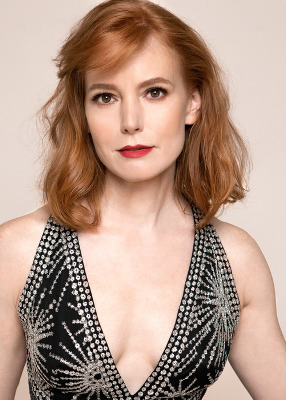
 The Disappearance of Cari Farver is based on a true story and the subject of Leslie Rule’s bestselling true-crime book A Tangled Web. Dave Kroupa (Zach Gilford, Good Girls, Friday Night Lights) is shocked when his new girlfriend, Cari Farver (Rebecca Amzallag), starts sending him demanding texts. When Dave ends the relationship, he finds himself on the receiving end of an onslaught of twisted messages from Cari, who has abruptly disappeared. Dave’s ex-girlfriend, Liz (Alicia Witt, Friday Night Lights, The Walking Dead), also begins receiving harassing texts from Cari, resulting in a dangerous situation for them both. Meanwhile, Cari’s mother Nancy (Lea Thompson, Back to the Future, Switched at Birth) continually searches for her, keeping the pressure on the police who eventually uncover a shocking discovery. The Disappearance of Cari Farver premieres Saturday, October 8 at 8/7c.
The Disappearance of Cari Farver is based on a true story and the subject of Leslie Rule’s bestselling true-crime book A Tangled Web. Dave Kroupa (Zach Gilford, Good Girls, Friday Night Lights) is shocked when his new girlfriend, Cari Farver (Rebecca Amzallag), starts sending him demanding texts. When Dave ends the relationship, he finds himself on the receiving end of an onslaught of twisted messages from Cari, who has abruptly disappeared. Dave’s ex-girlfriend, Liz (Alicia Witt, Friday Night Lights, The Walking Dead), also begins receiving harassing texts from Cari, resulting in a dangerous situation for them both. Meanwhile, Cari’s mother Nancy (Lea Thompson, Back to the Future, Switched at Birth) continually searches for her, keeping the pressure on the police who eventually uncover a shocking discovery. The Disappearance of Cari Farver premieres Saturday, October 8 at 8/7c.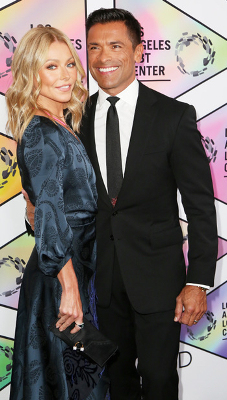 Lifetime Announces Two New Ripped From the Headlines Movies from EPs Kelly Ripa and Mark Consuelos, Jenna Dewan Set to Star and EP
Lifetime Announces Two New Ripped From the Headlines Movies from EPs Kelly Ripa and Mark Consuelos, Jenna Dewan Set to Star and EP



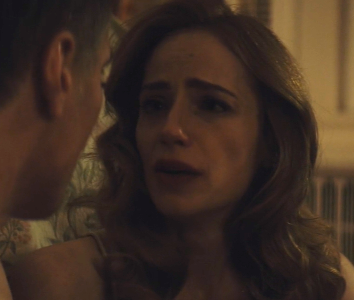 Alexis’ sister) and more. I had a lot of fun. The movie comes out today, Oct. 7, in theaters and On Demand. I highly recommend it because it’s a good psychological horror thriller. Anson Mount (
Alexis’ sister) and more. I had a lot of fun. The movie comes out today, Oct. 7, in theaters and On Demand. I highly recommend it because it’s a good psychological horror thriller. Anson Mount (





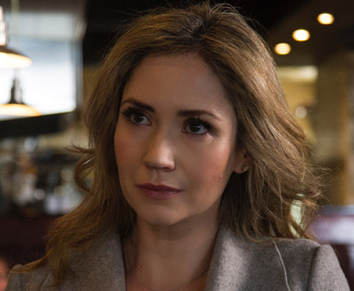

 It was really great to speak with this lovely young actress who stars in “FALL.” She is outstanding in this exciting movie. You don’t want to miss it; it comes out tomorrow, August 12.
It was really great to speak with this lovely young actress who stars in “FALL.” She is outstanding in this exciting movie. You don’t want to miss it; it comes out tomorrow, August 12. 
 From the Producers of 47 Meters Down
From the Producers of 47 Meters Down With the short film series cancelled, Mann and Frank decided to expand their
With the short film series cancelled, Mann and Frank decided to expand their One of the things that makes FALL unique is its location. Namely, the real-life
One of the things that makes FALL unique is its location. Namely, the real-life Becky’s best friend Hunter is a daredevil YouTuber who has her own reason
Becky’s best friend Hunter is a daredevil YouTuber who has her own reason “Being directed by Scott with a bullhorn 60 feet below us was so funny,”
“Being directed by Scott with a bullhorn 60 feet below us was so funny,”


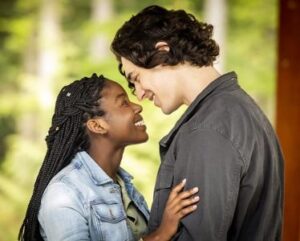
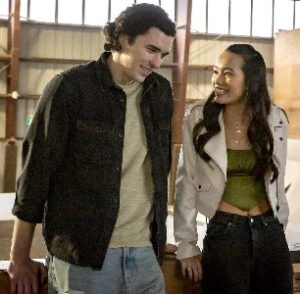
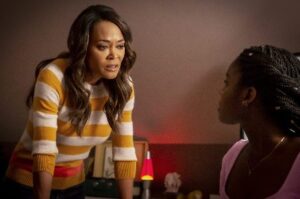 MODERATOR: Thank you. We also have some pre-submitted questions from journalists who could not be here today. This question is for Hilda. Hilda, you have some pretty intense scenes with Robin Givens who plays your mother in the movie. What was it like working with a veteran actress, and did she give you any advice or were there any fun times together on the set?
MODERATOR: Thank you. We also have some pre-submitted questions from journalists who could not be here today. This question is for Hilda. Hilda, you have some pretty intense scenes with Robin Givens who plays your mother in the movie. What was it like working with a veteran actress, and did she give you any advice or were there any fun times together on the set?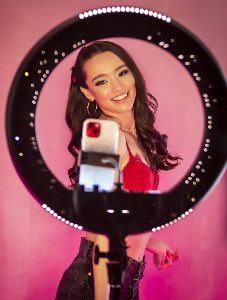 RACHEL BOYD: Thank you.
RACHEL BOYD: Thank you.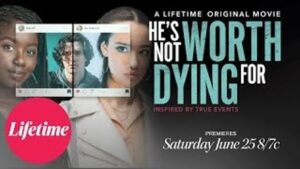
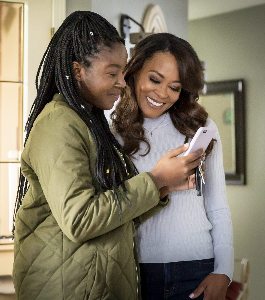

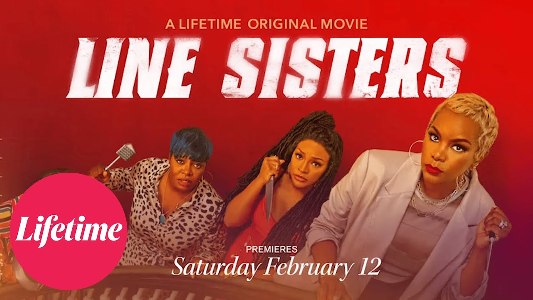
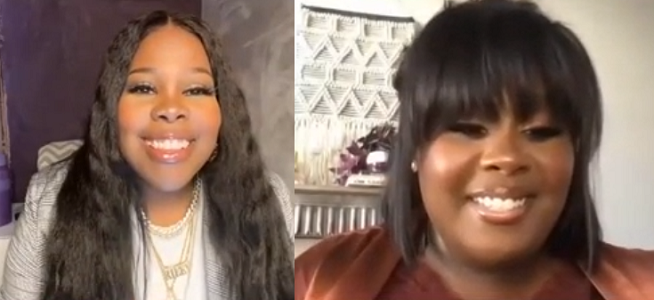
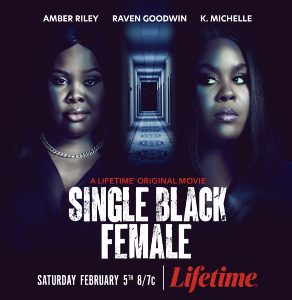

 Eugene: Oh, we filmed on an actual boat. This was an actual boat, and we were on the actual water. And I was not excited about it, because I can’t swim, and I don’t like boats. So, this was a lot of faith. They kinda lied to me. They kind of lied to me a little bit and didn’t tell me we’re going out on the water. Then, they kind of let it out that, “Oh yeah, we’re getting on the water,” and I’m like, “What are you talking about?” [unintelligible] on a boat. They’re “Like no, we got to go out.” Yeah.
Eugene: Oh, we filmed on an actual boat. This was an actual boat, and we were on the actual water. And I was not excited about it, because I can’t swim, and I don’t like boats. So, this was a lot of faith. They kinda lied to me. They kind of lied to me a little bit and didn’t tell me we’re going out on the water. Then, they kind of let it out that, “Oh yeah, we’re getting on the water,” and I’m like, “What are you talking about?” [unintelligible] on a boat. They’re “Like no, we got to go out.” Yeah.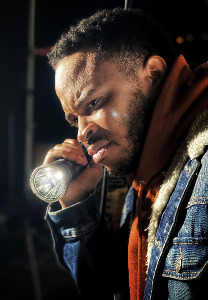 Eugene: It was sixteen days. I could be wrong. I’m trying to remember– I think it was sixteen days. And it was all night. All night shoots. So, it was switching straight from [day] and that’s it. So [unintelligible] every day.
Eugene: It was sixteen days. I could be wrong. I’m trying to remember– I think it was sixteen days. And it was all night. All night shoots. So, it was switching straight from [day] and that’s it. So [unintelligible] every day. Suzanne: – until your role in
Suzanne: – until your role in  Suzanne: Getting back to Arrow, I mean, it was a great role with you and and the guy that plays Diggle, your brother?
Suzanne: Getting back to Arrow, I mean, it was a great role with you and and the guy that plays Diggle, your brother?
 Buffalo 8 has announced the acquisition of
Buffalo 8 has announced the acquisition of 

 RYAN MCPARTLIN:
RYAN MCPARTLIN:
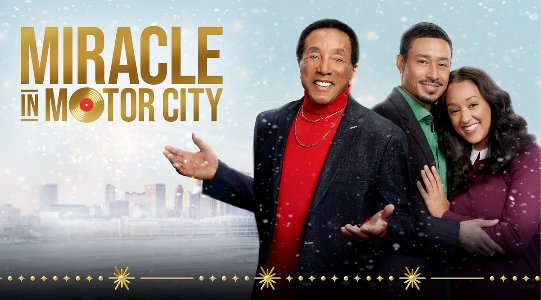
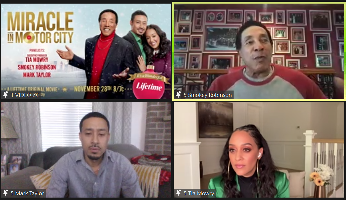 SUZANNE: I just finished watching your movie this morning. I really enjoyed it.
SUZANNE: I just finished watching your movie this morning. I really enjoyed it.



 Diane Walters, an over-burdened mother of two with a third child on the way, strives to create the perfect Christmas while her loving but dysfunctional family falls apart around her.
Diane Walters, an over-burdened mother of two with a third child on the way, strives to create the perfect Christmas while her loving but dysfunctional family falls apart around her. Dean Winters is an American character actor. He is known for his role as Ryan O’Reily on the HBO prison drama Oz and had roles in TV series Rescue Me, 30 Rock, Sex and the City and Law & Order: Special Victims Unit, as well as portraying “Mayhem” in a series of Allstate Insurance commercials. He co-starred in one season of the CBS Network cop drama series Battle Creek and had a recurring role as the Vulture on the comedy series Brooklyn Nine-Nine.
Dean Winters is an American character actor. He is known for his role as Ryan O’Reily on the HBO prison drama Oz and had roles in TV series Rescue Me, 30 Rock, Sex and the City and Law & Order: Special Victims Unit, as well as portraying “Mayhem” in a series of Allstate Insurance commercials. He co-starred in one season of the CBS Network cop drama series Battle Creek and had a recurring role as the Vulture on the comedy series Brooklyn Nine-Nine.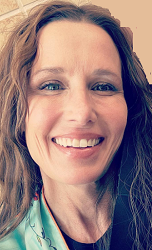


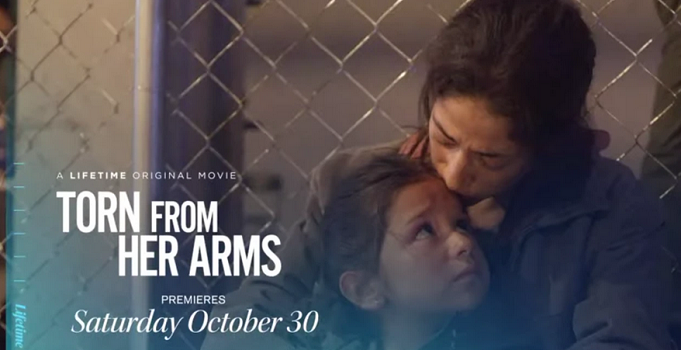

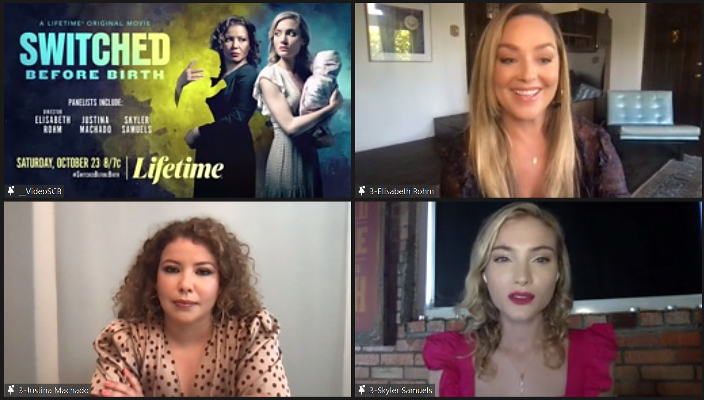
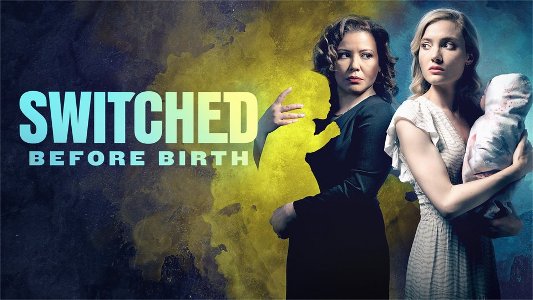





 Here’s your chance to get in on one of the few critically lauded, award-winning feature films at the upcoming gems premiering on BET HER in a couple weeks, Saturday, August 7th at 7pm ET/PT, 6pm CT. Filmmakers KELLEY KALI and DEON COLE (Black-ish star) talk about their critically lauded film,
Here’s your chance to get in on one of the few critically lauded, award-winning feature films at the upcoming gems premiering on BET HER in a couple weeks, Saturday, August 7th at 7pm ET/PT, 6pm CT. Filmmakers KELLEY KALI and DEON COLE (Black-ish star) talk about their critically lauded film, 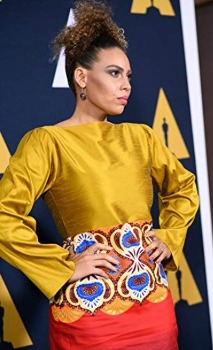 27th (Pacific).
27th (Pacific). Filmmaker Kelley Kali, one of the breakout talents in Hollywood, won the 2018 Academy Award for Best Film for her narrative short, Lalo’s House, and brought in a number of talented filmmakers including co-director Angelique Molina, fellow USC Cinema School graduate Roma Kong as well as award-winning producer Capella Fahoome. Kelley developed the plot line of “I’m Fine (Thanks For Asking)” looking around Los Angeles as the Covid crisis started to shutter businesses, diminish earnings and jeopardize so many single parents ability to pay rent and feed their families late last spring. The storyline centers on a recently widowed mother who becomes homeless and convinces her 8-year-old daughter that they are only camping for fun while she works to get them off the streets.
Filmmaker Kelley Kali, one of the breakout talents in Hollywood, won the 2018 Academy Award for Best Film for her narrative short, Lalo’s House, and brought in a number of talented filmmakers including co-director Angelique Molina, fellow USC Cinema School graduate Roma Kong as well as award-winning producer Capella Fahoome. Kelley developed the plot line of “I’m Fine (Thanks For Asking)” looking around Los Angeles as the Covid crisis started to shutter businesses, diminish earnings and jeopardize so many single parents ability to pay rent and feed their families late last spring. The storyline centers on a recently widowed mother who becomes homeless and convinces her 8-year-old daughter that they are only camping for fun while she works to get them off the streets.

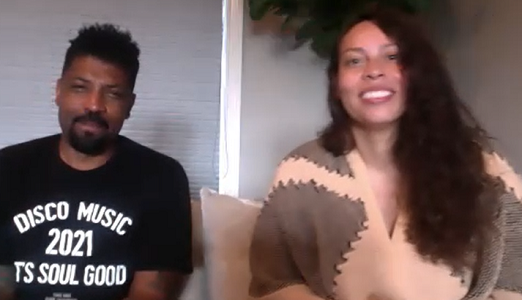




 r-ending nightmare. Cybil is also the director of this mind-bending horror film that follows ‘Thomas’ (Tom Sizemore), an alcoholic married doctor who has a one-night stand with ‘Nina’ (Cybil).
r-ending nightmare. Cybil is also the director of this mind-bending horror film that follows ‘Thomas’ (Tom Sizemore), an alcoholic married doctor who has a one-night stand with ‘Nina’ (Cybil). Cybil Lake is an American actor and filmmaker who has significant experience in the TV and film world. Her TV credits include “The Black List” with James Spader on NBC, “The Following” with Kevin Bacon on Fox, and “Show Me a Hero” directed by Academy Award Winner Paul Haggis for HBO. She has written, directed, and acted in numerous shorts, including An Echo Remains, which she screened at the Cannes Film Festival. Cybil was selected by NBC for a new filmmaker’s program, The Screening Room in 2010. She’s a graduate of NYU’s Tisch School of the Arts where she majored in film and acting.
Cybil Lake is an American actor and filmmaker who has significant experience in the TV and film world. Her TV credits include “The Black List” with James Spader on NBC, “The Following” with Kevin Bacon on Fox, and “Show Me a Hero” directed by Academy Award Winner Paul Haggis for HBO. She has written, directed, and acted in numerous shorts, including An Echo Remains, which she screened at the Cannes Film Festival. Cybil was selected by NBC for a new filmmaker’s program, The Screening Room in 2010. She’s a graduate of NYU’s Tisch School of the Arts where she majored in film and acting.

